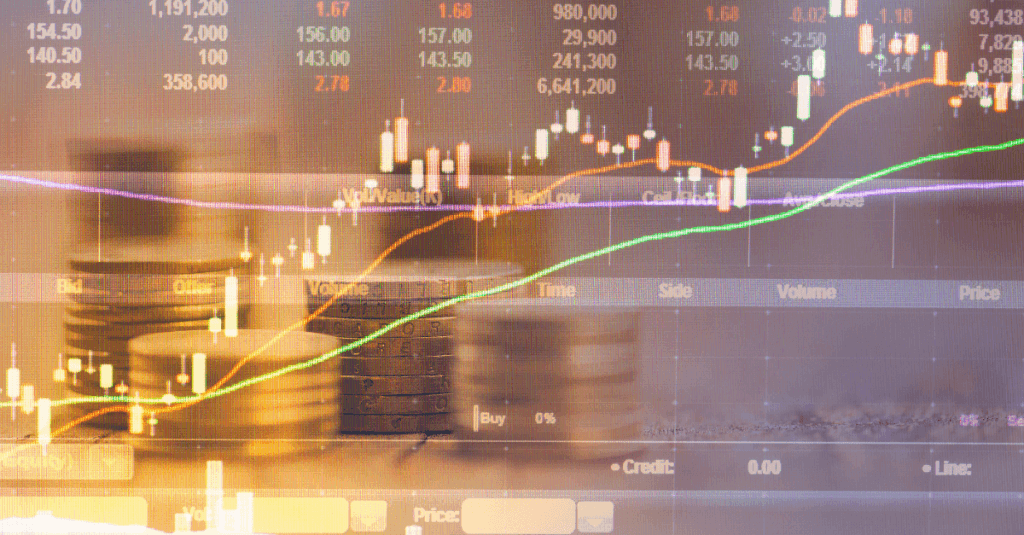Trading psychology looks at how a trader’s emotions, discipline, and mindset affect their trading decisions. Knowledge, skills, experience, and strategy contribute to a trader’s success on the market. However, trading psychology is what determines how well a trader applies their knowledge and strategy when trading. In trading psychology, the most common emotions that influence trading mistakes are fear, greed, and revenge. It is, therefore, important to understand and control these emotions.
Emotions That Affect your Trading
Fear
Fear leads traders to exit the market earlier than expected, which often costs them profit. For example, a trader closes a position heading in a favourable direction early, out of fear that the direction will change. However, the price continues to move in a favourable direction. Also, when a trader closes a position in the initial stages of the trade because of an unfavourable movement. Then, the price changes direction and goes in the direction they had selected.
Suffering a huge loss or a series of losses can also discourage traders from investing more money in the market due to the fear of further losses. Moreover, being new to trading and lacking a trading strategy may cause fear. Adverse news events can also cause fear. Adverse news causes traders to close their current positions and not open new positions. As a result, the traders miss out on making profits, although they may avoid some losses.
Greed
Greed is desiring more of something excessively. Greed can be observed when traders take large positions in each trade to increase profits. This may work against them if the trade moves against their positions and they end up with increased losses. Another manifestation of greed is when traders hold on to profitable trades for a long time without taking profits. This is in the attempt to gain extra profits. However, when the direction changes, the traders stand a chance to lose their profits.
Revenge
Making profits and incurring losses in trading is common for both new and experienced traders. When traders incur losses, how they react will influence their profitability in the market. Revenge in trading is where traders lose money on a trade and open new positions to recover the money they have lost. This may further increase the losses incurred by traders.
For example; A trader buys 1 lot of EUR/USD and loses 20 pips. Since the value of a pip is $10, the loss incurred is $200. To recover the money lost, the trader buys 2 lots of the currency pair. In this way, if the price rises by 20 pips, the trader gains $400. The trader recovers the $200 lost on the first trade and gains some profit. However, this is not always the case. The price may move in the opposite direction, and therefore the losses increase.
Impatience
Learning and understanding how the market works is important and may take some time. A misconception is that one can make quick money and become rich quickly when you invest in the markets. In reality, this is not common. To make quick cash, the traders open positions with large lot sizes. This presents an opportunity to make huge profits. The potential profit may blind the traders from seeing the danger if the trade goes against them. If the trade fails, traders incur huge losses, and some lose all their capital.
Tips For An Effective Trading Psychology
Considering the emotions discussed above, it is clear how trading psychology can affect traders. Therefore, it is important to have strategies to deal with these emotions. Here are some tips that you can use.
Develop a Trading Plan
Following a plan helps you achieve the goal you’ve set. Having a trading plan will help you in your forex trading journey. Some things to consider in a trading plan are;
- How much money you’re willing to invest.
- How much time you spend trading.
- What trading strategy you’re going to follow.
Having a trading plan helps you decide when to buy or sell financial instruments and when to exit the market. It is important to have a plan that you understand and that helps you reduce your losses. A trading plan and a trader’s discipline in adhering to the plan will help prevent emotions from influencing the trader negatively. Also, the risk is reduced.
Practice Risk Management
Only invest money that you’re willing to lose, just in case the price moves against your position. This helps control your risk exposure. Setting up a stop loss and a profit target for a trade will help reduce the emotional influence. These levels are predetermined; hence the trader is aware of how much he/she is willing to lose (stop loss level). Also, how much profit he/she is willing to take (take profit level).
Avoid Greed and Expecting Quick Profits
On the issue of greed, if you’re willing to trade large lot sizes per single trade, be ready for heavy losses if things don’t go your way. It is better to trade in lot sizes that can be accommodated in your trading account. Positions that will reduce potential losses and prevent money in your account from being wiped out. Moreover, a proper risk management strategy will help traders if they follow it.
Be Aware of Market Uncertainty
The forex market is uncertain. The market may abruptly go against your position at any time. Being aware of this prepares you in advance if you incur a loss from a trade you’ve placed. This awareness leaves you better placed to handle the loss without the emotions influencing your trading performance.
Final Thoughts
Trading psychology plays a crucial role in succeeding in the financial markets. It is, therefore, beneficial for traders to learn how to control their emotions to improve their trading performance.
To learn more, go back to our forex education section here.
